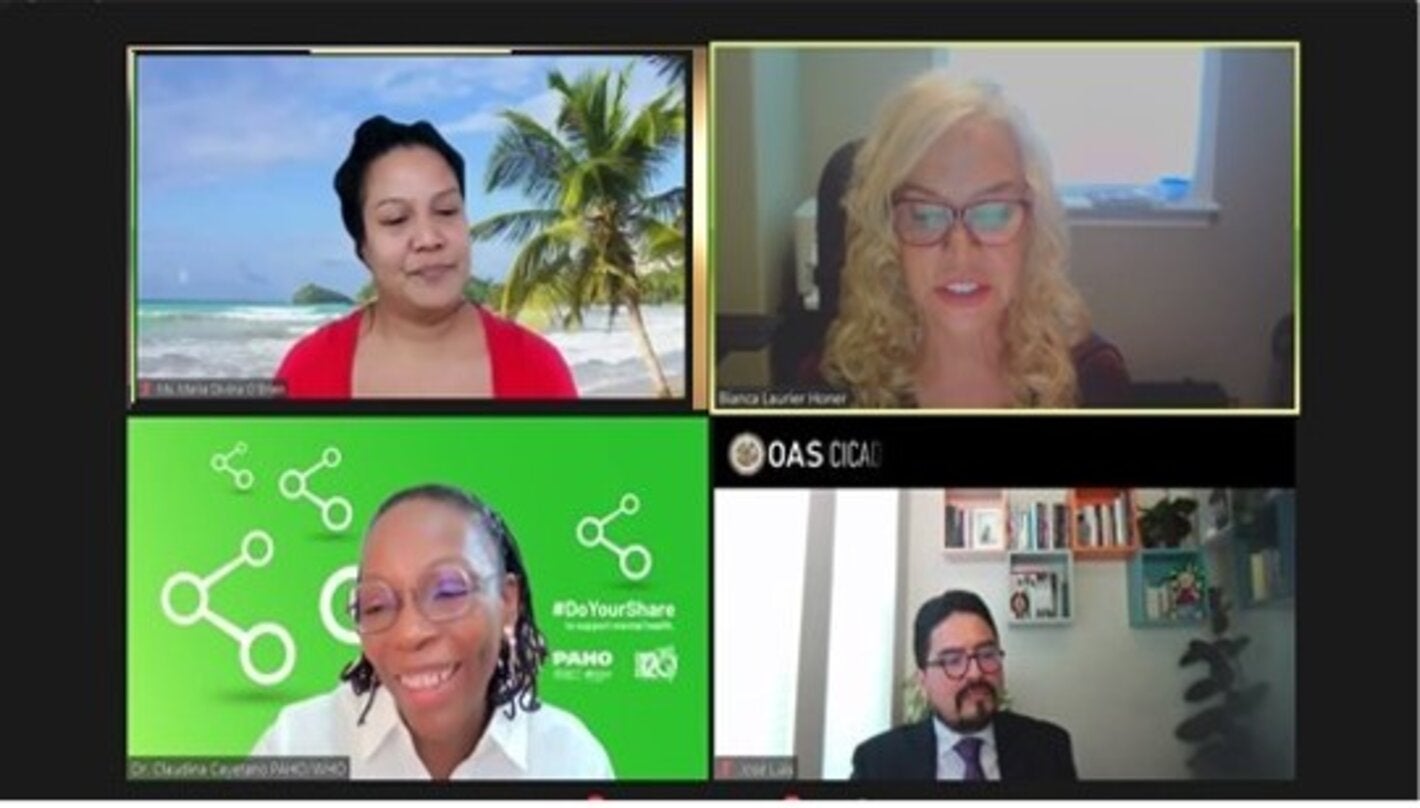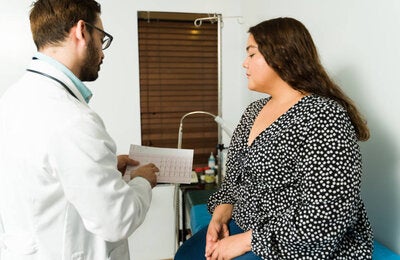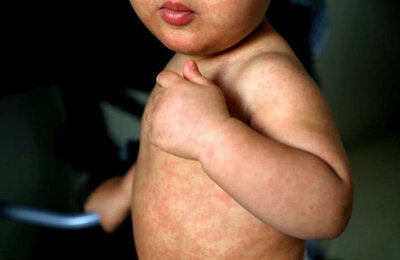
PAHO will soon launch virtual courses for the reduction of stigma in mental health in a self-study mode, in Spanish and English
Washington, DC., 19 August, 2022.- On August 18, PAHO launched the course "Understanding stigma, version 2.0" was launched in a webinar with the participation of representatives of Mental Health First Aid Canada and the Opening Minds initiative of the Mental Health Commission of Canada, the Inter-American Drug Abuse Control Commission (CICAD), the MindWise project, and the Pan American Health Organization/World Health Organization PAHO/WHO. The new PAHO Campaign to Reduce Stigma in Mental Health was also presented during the same event.
The second edition of the course "Understanding Stigma" has been developed by PAHO in collaboration with the Mental Health Commission of Canada. The aim is to reduce stigma related to mental illness in health services, as well as providing guidelines to primary care workers to improve their skills in caring for people with mental health problems.
This virtual tutored course is being held from 15 August 15 to 30 November 2022 with the participation of 200 primary health care professionals from the Caribbean who have experience in the field of mental health. PAHO will also soon be launching self-learning virtual courses on reducing mental health stigma, that will be available in English and Spanish at PAHO's Virtual Campus for Public Health.
"Stigma may be worse than the disease itself"
Mike Pietrus, Director of Mental Health First Aid Canada and the Opening Minds initiative of the Mental Health Commission of Canada highlighted the importance of the course and said evidence has shown that two thirds of people with mental health conditions do not seek help due to stigma. "Stigma may be worse than the disease itself", Mr. Pietrus said, adding that, on average, "people experiencing anxiety wait 9 to 23 years before seeking help. Labels such as 'crazy', 'lazy', and 'dangerous' are associated with mental health conditions and this is one of the main concerns of people with lived experience of these conditions".
For his part, José Luis Vázquez of CICAD emphasized that media headlines also increase stigma and create a barrier against people seeking help.
Maria Divina O'Brien gave poignant testimony of her own struggles with mental health conditions from an early age, and said that the stigma associated with seeking help was a barrier against her struggle to get better. The challenges involved in finding appropriate mental health services in the United States and in Trinidad and Tobago were also discussed as experiences of stigma and discrimination.
The Campaign to Reduce Mental Health Stigma, that will be implemented in the Region starting in September, was also presented at this event. This campaign promotes positive attitudes towards people with mental health conditions and seeks to increase awareness about the various forms of stigma and the effects on people with mental health problems, while promoting positive interactions that improve attitudes and encourage people to seek help. Adolescents and young people, health care providers, people with mental health conditions, and media journalists are the target audience of this campaign.



